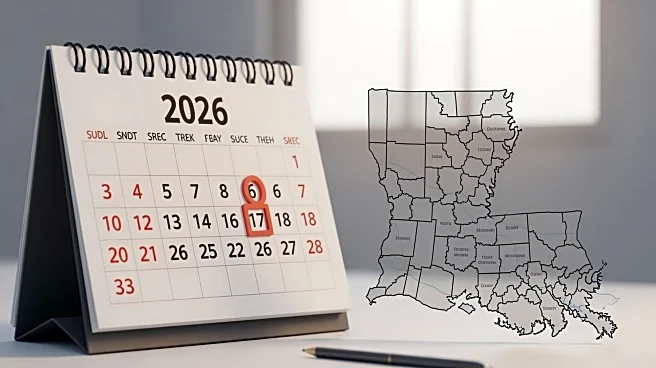What's Happening?
Louisiana Governor Jeff Landry has called for a special legislative session to address potential changes to the 2026 election schedule. This move comes after the U.S. Supreme Court heard arguments regarding Louisiana's congressional map, which includes
two majority-Black districts. The session aims to provide the GOP-dominated legislature more time to redraw the map if the court rules against the current boundaries. The special session is set to begin on October 23 and conclude by November 13. The case could impact the Voting Rights Act, which has historically protected against racial discrimination in voting.
Why It's Important?
The outcome of this case could significantly affect the political landscape in Louisiana and potentially other Southern states. If the Supreme Court rules against the current map, it may lead to the elimination of majority-Black and Latino districts, which typically favor Democrats. This could strengthen Republican influence in these regions. The decision will also test the robustness of the Voting Rights Act, a critical tool in combating racial discrimination in voting. The implications extend beyond Louisiana, potentially affecting redistricting efforts nationwide.
What's Next?
The Supreme Court is expected to deliver its ruling by early summer 2026. If the court overturns the map, Louisiana lawmakers will need to quickly devise a new congressional map that complies with the ruling. This could lead to further legal challenges and political debates over the fairness and representation of minority communities in the electoral process. Stakeholders, including civil rights groups and political leaders, will closely monitor the developments and prepare for potential shifts in electoral strategies.

















